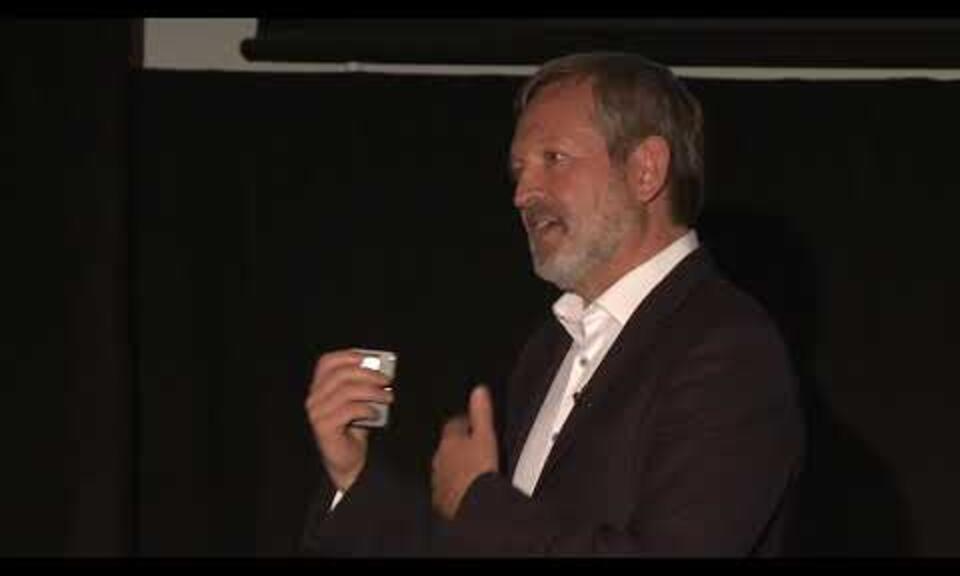The future of Executive Education: Imperial’s new Director of Executive Education talks pressure, technology and 19th century business practices
The future of Executive Education: Imperial’s new Director of Executive Education talks pressure, technology and 19th century business practices
David Brown joined Imperial Business School in March as its Director of Executive Education. His appointment to the newly created role is part of a wider initiative to accelerate, expand and strengthen the School’s Executive Education practice (the programmes it offers to businesses and industry executives).
We sat down with David to find out more about his plans for the future of Executive Education.
What were you up to before you joined Imperial Business School?
I’ve always been interested in developing ideas and growing businesses. I began my consulting career with Mars & Co, which had grown out of BCG, and then joined Andersen Consulting, which is now Accenture. I eventually set up my own consulting business, specialising in leadership and business development training. A few years later, I got a call from London Business School, asking whether I could help turn around their sales and marketing within executive education for six months. Nine years later, we’d transformed the business in terms of quality, reputation, revenue, profitability and working environment. We became nearly 50 per cent of the school’s revenue. I’m so thrilled to now be here at Imperial Business School, where we have a terrific opportunity to grow and develop what we do.
What is executive education?
It refers to programmes that are targeted at leaders working in managerial or executive roles. At Imperial, we run both open enrolment programmes for individuals or small teams, and bespoke custom programmes for larger teams or organisations.
Executive education is about four things. First, it’s about developing new knowledge, skills and attitudes, and ensuring executives have the confidence, practice and commitment to put those things into practice. Second, it’s about helping individuals through transitions as they become more senior, or as they take on responsibility for new areas. Third, it’s about organisational change and developing the new capabilities organisations need to deliver strategic change. Finally, it’s about being forensic in what it is that you’re trying to achieve.
What do businesses actually want from such programmes?
Everyone wants fast, cheap, digital and impactful. They want great networking opportunities, “wow” moments and minimal time out of the business. Some of those things are mutually exclusive.
Our role is to help clients find a solution that exactly meets their needs. Part of what makes this job interesting is that often companies don’t know what they want to achieve, or don’t agree. We help them establish and then measure the value of specific programmes. Once we’ve done that – starting with the end in mind – it’s a lot easier to design the programme.
How has that process changed?
Thanks to advances in technology, the speed of change in business has been extraordinary, and looks set to increase. Many executives need help understanding the changes, implications of those changes, and how to work differently with colleagues, with different parts of the organisation, with customers, competitors, regulators and suppliers.
At the same time, many managers and executives are getting increasingly anxious. That’s partly due to the speed of change, but it’s also because the pressures and level of scrutiny placed on leaders are greater than ever, and that’s made being a leader more difficult – and exciting – than ever.
Most working environments have changed. Executives themselves have changed – or need to change. That means the need for learning has increased, but the time and money available is reducing in many companies. It’s a challenge that needs creative solutions.
Creative in what way?
Executives need to be able to engage with the people who are actually creating the future: the researchers, the scientists and the early adopters. They also need to be able to directly engage with some of these new technologies and ways of working. We need to create a visceral experience of working with new technologies, big data, AI or rapid design to help executives understand what might be possible, to explore faster, more innovative and more effective ways of creating the future.
Imperial has long been a leader in great learning design, and we work with our colleagues up and down Exhibition Road – the Royal College of Art, the Royal College of Music, the Royal Geographical Society, the Dyson School of Engineering, the Data Science Institute, our medics and engineers – to provide amazing learning experiences.
And that will involve a certain degree of experimentation?
Experimentation bridges the gap between an interesting idea and a practicable business reality. For over 100 years, Imperial has been helping students and organisations experiment. The tragedy for business is that, for many people, experimentation – even play – was something they left at school. Stimulated by new experiences, we need to help executives develop ideas and test whether they work in the context of their business and their industry. And then we explore how to refine and scale those ideas.
Does that mean you have to change the way you teach, or are you still handing out photocopies and pointing at a blackboard?
Many people think digital or face-to-face learning is an either/or. We have to design every programme to meet the clients’ needs in terms of time, people, money and outcome.
We are incredibly fortunate to have a world-class Edtech Lab within the Business School. We think we have some of the most interesting programme designs around. We mix in-person sessions of 15 to 150 people from around the world with online learning and create extraordinarily high levels of peer-to-peer and faculty-supported learning in a way that very few organisations can achieve.
What do you see as the biggest risks to organisations at the moment?
Most businesses are still organised around 19th or early 20th century business practices. Given the speed of change, many firms will find themselves ill-equipped for the future. That will have implications for individuals, communities, even countries. In working with large organisations on organisational change, we can begin to help. And, basically, make the world a better place.
This article originally appeared in the 2019 issue of Imperial Business.













